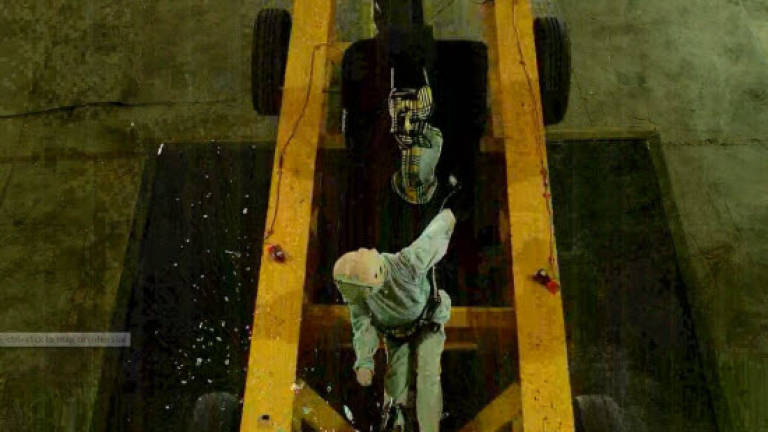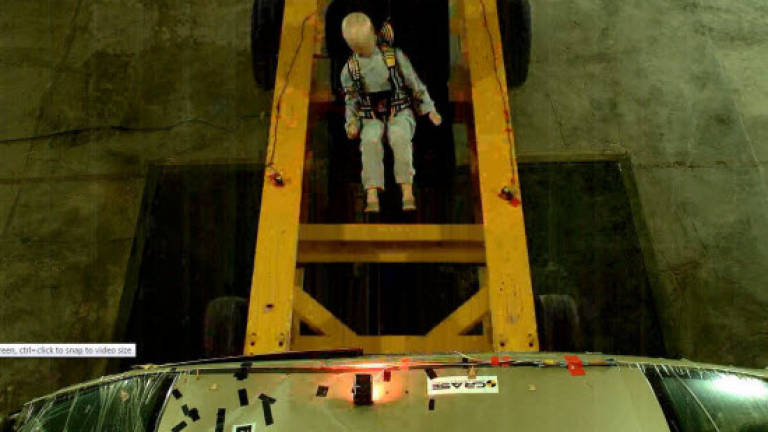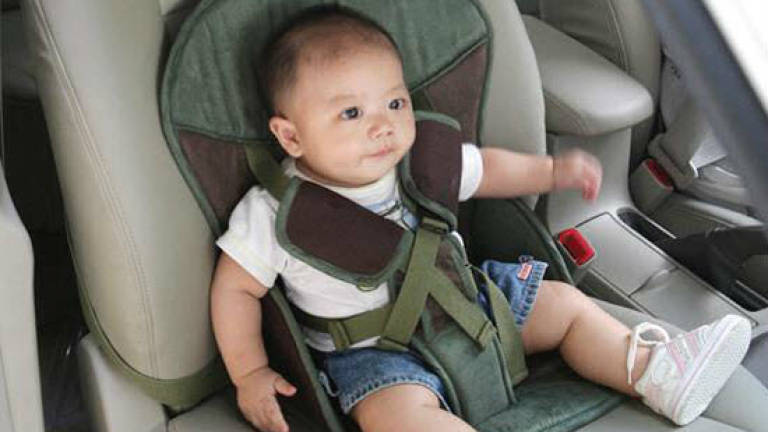Govt aims for child car seat regulation by 2017



PUTRAJAYA: The government will propose an amendment to the Road Transport Act 1987 to regulate the use of child restraint systems (CRS) in vehicles, which is expected to be enforced by 2017.
The move comes in the wake of increasing road accident fatalities involving children.
Senior officials of the Transport Ministry held a meeting yesterday to discuss the need to make it compulsory for drivers or parents to place their children in proper child car seats.
theSun also understands that the Malaysian Institute of Road Safety Research (Miros) has been asked to conduct a feasibility study before implementing the move.
”Statistics have shown that children, aged one to four (43.8%), and five to nine (30.2%), were involved in accidents. So, it is important to install a child restraining system to prevent injuries in this age group,” said a senior government official.
He said studies have shown that with CRS, infant deaths could be reduced by about 70%, 54% for children aged one to four and injuries for children aged four to seven could be reduced by 59%.
Parents are advised to be meticulous and vigilant in purchasing child and toddler car seats including those from renowned labels, as wrong restraining system could be fatal for kids.
Malaysian Institute of Road Safety Research (Miros) in its recent safety tests had uncovered a serious flawed of below-par child restraining system (CRS) of a particular toddler car seat model that was subsequently categorised as completely unsafe, even at low travelling speed impact collisions.
Among the CRS tested by the Miros Provisional Crash Safety Engineering Unit (Crase) at its Crash Centre or PC3 crash lab in Malacca, was the portable type known as pocket child/toddler car seat or the harness-styled, classified by product manufacturers as suitable for children up to 18 kg.
The pocket-typed car seat was strapped on the shoulder of the dummy acting as 18-month-toddler and was placed in a vehicle on rear passenger seat for a crash test.
The result was a shocking revelation. The harness was shattered and ripped apart from the car seat with the dummy flung to the front of the vehicle at just 40 km/h impact.
"Tests have shown that the harness-styled or portable car seat disintegrated upon impact. Its material durability was dreadful as it did not withstand the crash," said Miros director-general Prof Dr Wong Shaw Voon.
Checks by theSun has revealed that the pocket car seats were sold cheaply for as low as RM30 in the market, and easily available at hypermarkets and baby accessory shops as well as being available to be purchased online.
However, Dr Wong said the overall quality standard of the child/toddler car seats sold locally at present is still good.
He added: "Parents only need to look at the important requirements. If your car is equipped with ISOFIX and top tether, please find child car seats with the same specifications to mate with the safety features inside the car."
Miros PC3 crash specialist Yahaya Ahmad told theSun that as a guide, "look for the orange sticker label of R-44 specifications since it is in compliance with United Nations standard ECE regulation".
Yahaya highlighted that his team had conducted checks early this year at the supermarkets, baby-care outlets and other places in the market selling the child car seats.
"We found that 80% of the child and toddler car seats sold in the market are already in compliance with UN ECE R-44 specifications," he said, adding that from his observation, the retail prices of UN-compliant child seats sold in Malaysia have reduced tremendously over the years.